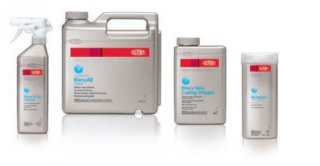

All-natural Rock Care and Repair
Stone’s beauty, style and pure individuality can last an eternity too, in case it is looked after precisely.
Care and maintenance is crucial towards life time of your rock surface. But keepin constantly your stone maintained is not as tough while you might believe. Regular sweeping or vacuuming and periodic thorough cleaning keeps your floors looking their finest. It is essential to keep in mind that sealing of natural stone is imperative, which it is done by a seasoned professional. Closing your all-natural stone floor makes it less permeable, more tarnish resistant, and shields the stone’s original beauty.
Inherent Characteristics of Tile & Rock
Crazing and tone variants, texture, composition, glazing, variants in colour, grain structure, periodic pitting and veining alongside features tend to be an inherent characteristic of all ceramic/porcelain and/or fired clay products and/or composite products and/or cup items and/or all-natural rock items.
Goods in many cases are prepared in numerous batches and batches can vary among them. Italia Ceramics recommend that natural stone are thoroughly cleaned after installation & once washed a sealant be reproduced to your tile surface and re-applied occasionally depending on the damage of the product.
All-natural Rock Preventative Repair – Cleaning Techniques
All-natural rock needs a certain standard of ongoing treatment and upkeep.
- Sweeping: The old-fashioned broom remains a very important element of everyday maintenance of every floor surface – stone included. It's very important to remove soils from flooring areas before they have surface in to the flooring. Soils tend to be abrasive. The greater amount of frequently grounds tend to be eliminated the much longer the ground will retain the initial look. Utilize a broom with a bristle that matches your surface. A soft broom or brush is recommended for smooth areas. A medium-soft bristle is fantastic for textured surfaces.
- Vacuuming: an excellent hoover works better on textured surfaces than a broom and it is really efficient. Make use of vacuum pressure on any horizontal surface whenever large areas are involved since it is quicker than sweeping in most cases.
- Moist Mopping: a moist mop is capable of picking right on up microscopic abrasive soils and potential staining agents. Moist mopping is recommended for most smooth surfaces frequently. Most useful done after sweeping or machine.
- Washing: it is important to wash a floor regularly. The task conditions will influence regularity. Probably the most regular problems experienced with stone flooring tend to be regarding the ground not really getting efficiently washed frequently adequate.
- Rinsing: Rinsing is one of the most important measures in regular floor maintenance. Dirty mop liquid residue is common and an underlying cause for much complaint. A two bucket rinse technique is noteworthy in order to keep floors from graying on as a result of soil residues.
 Natural Stone Preventative Repair – Cleansing Chemicals
Natural Stone Preventative Repair – Cleansing Chemicals
- Soaps: Natural soaps tend to be low-tech, affordable and user-friendly. They are also effective at offering a sealing and/or dressing purpose for rock flooring. Vegetable based soaps are best. Specialty soaps formulated for use on rock are recommended and desirable of many normal rock flooring also stone areas.
- Detergents: they are artificial surface-active representatives (surfactants) being great at picking up soils and emulsifying oil and oil. They generate liquid “wetter” plus efficient for cleaning purposes. The detergent useful for rock
cleaning must certanly be carefully assessed for compatibility with the stone. Detergents are generally combined with water that will figure out the pH of cleansing option. Detergents usually keep the rock really “raw” or absorbent and residues is likely to make liquid penetration into the rock far better. - Acids: they're used for eliminating grout haze, eliminating mineral deposits as well as corrosion removal. Acidic products attack lime and concrete. Be careful with acids and acid pH products because they attack the polish on marbles and limestone. Phosphoric acid, citric acid and sulfamoc acid is advised to muriatic, sulphuric and hydrocloric acids in practically all situations considering security and control issues.
- Abrasives: Abrasives are often of good use as a soap but should-be limited by non-polished surfaces. Abrasives are along with detergents or soaps for scouring a surface and eliminating slim levels from area. There are plenty of forms of products used as abrasives – soft abrasives may be made up of fan shells or feldspars, difficult abrasives are silica quartz, carbide or even diamond.
- Bleaches: Bleaches are usually oxidizing agents (generate oxygen) and are also useful in stain elimination. Enzyme types are available which are non-hazardous.
Looking after Your Composite Rock
Composite rock surfaces blend contemporary elegance and classic luxury with unbeatable durability and strength. The ever-lasting finish of composite stone calls for only simple and easy routine care to keep its looks. To completely clean composite stone, we advice making use of tepid to warm water and a mild detergent or high quality squirt and wipe kind cleaner to enjoy suffering beauty and unparalleled overall performance for a long time to come.
Composite Rock Desires Minimal Repair
Practically maintenance-free, Composite Stone’s difficult, non-porous areas need no sealing to renew the luster and tend to be simple to cleanse. Normally, water and soap or a mild detergent is sufficient to keep your Composite rock countertop looking like new. If required, use a non-abrasive soft-soap along side a non-scratch or fragile scrub pad. After ward, carefully wash with clean water to eliminate residue. Composite Stone’s non porous nature permits it to withstand short term experience of tea, soft drink, wine, vinegar, lemon juice and highly coloured herbs, but leaving spills for very long durations might cause the spill to impregnate the stones surface causing it to stain.
Stubborn Spots or Dried Out Spills on Composite Stone
If required, use a non-abrasive family cleansers (a non-abrasive cleaner will not dull the top shine) and wash to get rid of residue. To remove followed product such as food, gum, nail polish and on occasion even dried paint, very first scrape away extra material with a plastic putty knife after which use a damp fabric to remove any marks or residual dust. For extra-stubborn spots, a no-scratch Scotch-Brite® pad is recommended along with the non-abrasive solution suggested by your neighborhood Composite Stone® distributor.










